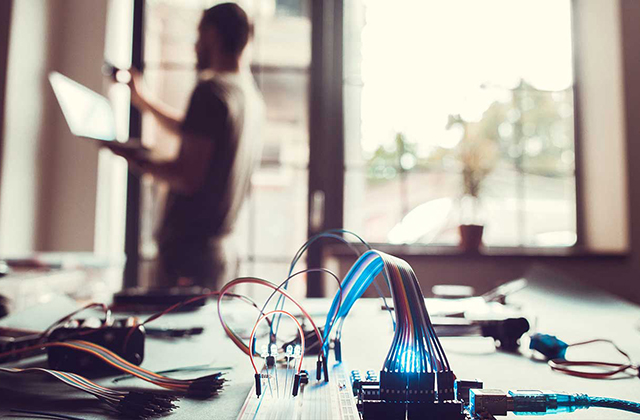Save Time & Money Doing Your Own Basic Electric Wiring
Hiring a professional electrician Melbourne CBD can be very expensive and is often the reason why people try doing their own basic electric wiring themselves.
I have seen the good, the bad and the ugly results of these efforts and I have come to the conclusion that basic electrical wiring is not something anyone should do without proper guidance, tools and confidence.
It is so important that before attempting any of these basic electrical wiring projects that people are aware of how dangerous electricity is and how important safety is for you and for your family and family home.
90 percent of the time I recommend hiring a licensed electrician over doing your basic electrical wiring yourself. Not doing this will usually end up costing even more money than before and increase the risk of bringing your family into danger without even knowing your doing it.
But doing your own basic electric wiring really isn’t that hard to do if you “educate” yourself on the topic.
Licensed electricians had to learn the stuff themselves too. So as a ‘do it yourself person’ this isn’t different. There is no escape possible.
You will see that the more you read about it the easier it will become and the more confidence you will get.
Just to give you an idea, here are 3 questions I recently got from people just like you who tried doing their own electric wiring:
Question 1: I installed a grounding probe in your aquarium and every time anyone in the house turns on or off the lights, the fish jump. What’s going on?
A couple of suggestions:
1. (easiest) Pull out that grounding probe and return it from whence you purchased it.
2. Check the wiring on your outlet. You may actually have ‘Neutral’ instead of ‘Ground’.
3. Check the wiring throughout the rest of the house. There are some people out there that insist on doing their own home repairs, yet don’t understand basic electrical wiring.
Outlets are easy to check by getting a $7.95 outlet tester from the hardware store. Wired-in appliances, lights, heaters, etc. are tougher.
4. Check all your electrical fixtures to make sure they aren’t leaking some voltage to Ground.
Question 2: What is the NEC? Where can I get a copy?
The NEC is a model electrical code devised and published by the National Fire Protection Association, an insurance industry group. It’s revised every three years.
The 1993 version has been released. You can buy a copy at a decent bookstore, or by calling them directly at 800-344-3555.
The code exists in several versions. There’s the full text, which is fairly incomprehensible. There’s an abridged edition, which has only the sections likely to apply to most houses.
And there’s the NEC Handbook, which contains the “authorized commentary” on the code, as well as the full text. That’s the recommended version. Unfortunately, there’s no handbook for the abridged edition. And the full handbook is expensive — US$65 plus shipping and handling.
Question 3: Can I do my own wiring? Extra pointers?
In most places, homeowners are allowed to do their own wiring. In some, they’re not. Check with your local electrical inspector. Most places won’t permit you to do wiring on other’s homes for money without a license. Nor are you permitted to do wiring in “commercial” buildings.
Multiple dwellings (eg: duplexes)are usually considered “semi-commercial” or “commercial”. However, many jurisdictions will permit you to work on semi-commercial wiring if you’re supervised by a licensed electrician – if you can find one willing to supervise.
If you do your own wiring, an important point:
Do it NEAT and WELL! What you really want to aim for is a better job than an electrician will do. After all, it’s your own home, and it’s you or your family that might get killed if you make a mistake.
An electrician has time pressures, has the skills and knows the tricks of the trade to do a fast, safe job. In this FAQ we’ve consciously given a few recommendations that are in excess of code, because we feel that it’s reasonable, and will impress the inspector.
The inspector will know that you’re an amateur. You have to earn his trust. The best way of doing this is to spend your time doing as neat a job as possible. Don’t cut corners. Exceed specifications. Otherwise, the inspector may get extremely picky and fault you on the slightest transgressions.
Don’t try to hide anything from the inspector.
Use the proper tools. Ie: don’t use a bread knife to strip wires, or twist wires with your fingers. The inspector won’t like it, and the results won’t be that safe. And it takes longer. And you’re more likely to stick a hunk of 12ga wire through your hand that way.
Don’t handle house wire when it’s very cold (eg: below -10C or 16F). Thermoplastic house wire, particularly older types become very brittle.
As you can see, getting the right answers to your questions can make the work a lot easier.
You save time by doing it “the right way” from the first time and you save money because you won’t need to hire an electrician to either do the entire job or to fix your screw-ups.
In any case, no matter what you, be very careful when working on electricity! If needed cut down the entire power of your house just to be sure.
Keep It Safe,
——————————————————–
Nico De Baere is a licensed electrician with over 10 years of experience with home and industrial electric wiring. He is the author of the ebook Basic Electric Wiring which gives answers to 77 of the most ask questions on basic electric wiring. Visit his site now or click here [http://www.basicelectricwiring.com]
—————————————————-
Article Source: http://EzineArticles.com/expert/Nico_De_Baere/8187
Article Source: http://EzineArticles.com/40054

